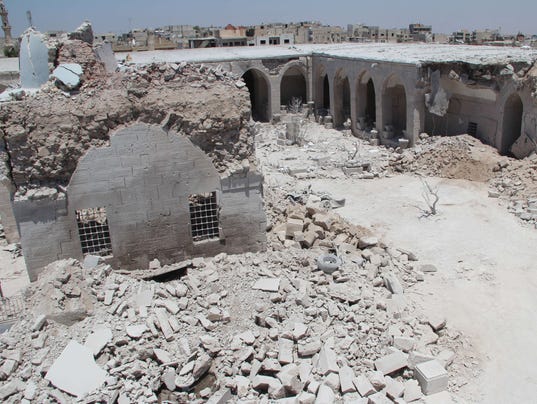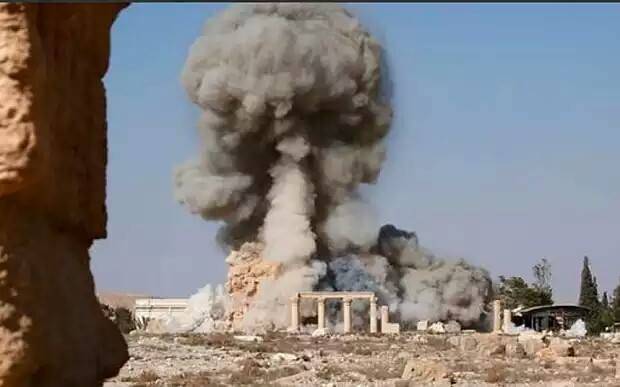Sometimes you will see strange bedfellows helping out together for a common cause.
Rebels, Syrian government work together to protect antiquities
Riham Kusa, Special for USA TODAY3:38 p.m. EDT June 22, 2015

(Photo: Ghaith Omran, AFP/Getty Images)
15CONNECT 28TWEETLINKEDINCOMMENTEMAILMORE
Despite a raging four-year civil war, rebel factions and Syrian officials are working together to protect the country's rich heritage sites from each other's bombs — and the Islamic State.
Across the country, irreplaceable artifacts have been under siege since 2011, when fighting erupted between the Syrian government and rebels seeking to overthrow President Bashar Assad.
"Archaeologists from the two conflicting sides are calling upon fighters not to use archaeological sites as battlefields and guard them from looting and destruction," said Maamoun Abdulkarim, head of Syria's Directorate General of Antiques and Museums, which oversees ancient sites and archaeological digs.
Continue reading at:
Rebels Syrian government work together to protect antiquities
Rebels, Syrian government work together to protect antiquities
Riham Kusa, Special for USA TODAY3:38 p.m. EDT June 22, 2015

(Photo: Ghaith Omran, AFP/Getty Images)
15CONNECT 28TWEETLINKEDINCOMMENTEMAILMORE
Despite a raging four-year civil war, rebel factions and Syrian officials are working together to protect the country's rich heritage sites from each other's bombs — and the Islamic State.
Across the country, irreplaceable artifacts have been under siege since 2011, when fighting erupted between the Syrian government and rebels seeking to overthrow President Bashar Assad.
"Archaeologists from the two conflicting sides are calling upon fighters not to use archaeological sites as battlefields and guard them from looting and destruction," said Maamoun Abdulkarim, head of Syria's Directorate General of Antiques and Museums, which oversees ancient sites and archaeological digs.
Continue reading at:
Rebels Syrian government work together to protect antiquities


